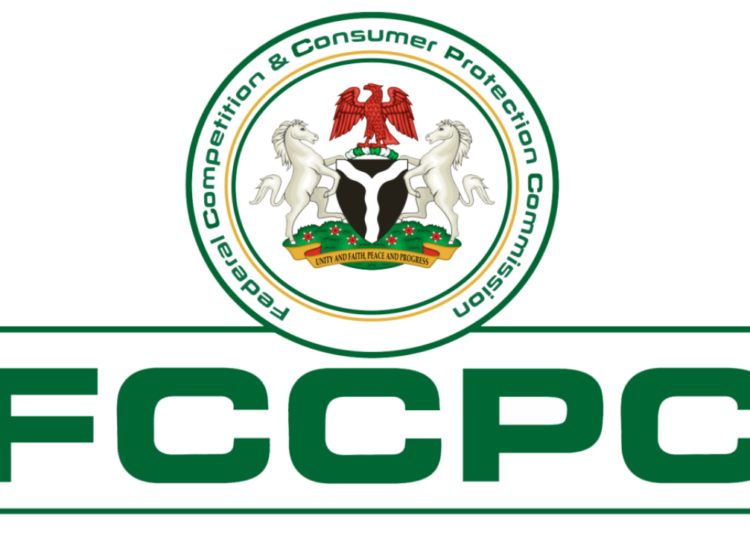🌿 Ruzu Non-Alcoholic Herbal Bitters
Ruzu Non-Alcoholic Herbal Bitters is a natural health supplement specially formulated to:
- ✅ Promote general wellness
- ✅ Detoxify the body
- ✅ Support the treatment of various ailments
Made from a powerful blend of 100% organic and medicinal herbs, Ruzu is completely alcohol-free, making it ideal for:
- 👪 All age groups
- 🌱 Health-conscious individuals
- 🌿 Anyone seeking non-alcoholic herbal remedies
Whether you're looking to boost your vitality, cleanse your system, or support healing the natural way, Ruzu Bitters offers a trusted herbal solution.
Electricity distribution companies Ikeja Electric and Eko Electric have been instructed by the Federal Competition and Consumer Protection Commission (FCCPC) to stop installing Unistar prepaid meters for customers.
Additionally, the Commission required DisCos to carefully follow industry rules regarding charging unmetered customers and to count energy users before grouping them into bands. The Nigerian Electricity Regulatory Commission (NERC), the Nigerian Electricity Management Services Agency (NEMSA), several electricity DisCos, and Unistar Hitech Systems Limited were among the stakeholders who attended a stakeholders’ meeting at the FCCPC headquarters in Abuja on Tuesday. Tunji Bello, the executive vice chairman and chief executive officer of the FCCPC, made the call to address urgent metering issues affecting Nigerian consumers.
Ikeja Electricity Distribution Company (IKEDC) and Eko Electricity Distribution Company (EKEDP) were ordered by FCCPC to immediately stop replacing Unistar prepaid meters due to their noncompliance with NERC’s instruction.
From inaccurate invoicing to poor customer service, Bello brought up important issues that power users face at the discussion.
He expressed concern over practices that require customers to pay upfront for meters without reimbursement, a clear violation of the NERC Meter Asset Provider and National Mass Metering Regulations 2021, and pointed out that systemic inefficiencies and a culture of impunity among some service providers have exacerbated these issues, resulting in the routine exploitation of consumers. DisCos commonly put customers with defective meters on estimated billing, which is against NERC’s rules, he added.
According to Bello, the FCCPC got a complaint from a customer of Ikeja Electric who was upset about having to pay a substantial amount of money to replace a working meter.
All meter replacement procedures must be carried out transparently, with the DisCos bearing the costs and not passing them on to customers, per the FCCPC’s directive to avoid possible exploitation.
Read Also: 23 Kidnap Victims Rescued by Police as Gunmen Claim Driver’s Life in Niger
Mr. Bello emphasized that in order to shield customers from capricious fees and projected billing, the FCCPC will strictly enforce adherence to these regulations.
Moreover, the FCCPC pledged to improve customer education regarding invoicing and metering procedures in order to prevent possible abuse by service providers. Bello ended by thanking NERC and NEMSA for their collaboration in creating an electricity industry that is consumer-centered, accountable, and transparent. He reiterated the FCCPC’s commitment to implement all applicable consumer protection regulations in the electrical sector in order to protect consumers’ rights and encourage ethical business practices.
The FCCPC ordered the replacement procedure to be stopped because the DisCos were not following NERC’s “Order on Structured Replacement of Faulty and Obsolete End-user Customer Meters in the Nigerian Electricity Supply Industry.” Both NEMSA and NERC supported the FCCPC’s position on the matter.
DisCos must prioritize metering unmetered consumers under the National Mass Metering Programme (NMMP) and adhere to stringent requirements when replacing malfunctioning or outdated meters, according to the NERC’s Order. According to these regulations, DisCos must evaluate defective meters and include comprehensive information in the replacement notification, such as the date of the inspection, the credentials of the inspecting officer, the problem found, and the planned replacement date. Additionally, since new meters must be set right away after removing any defective or outdated units, DisCos are not allowed to put customers on estimated billing because of meter replacement delays.
















